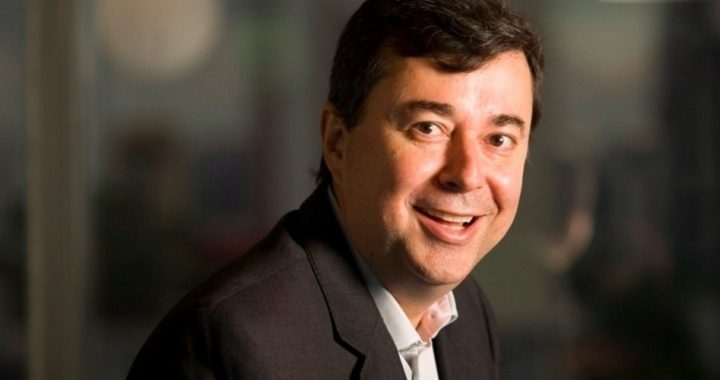
After Google’s unit in Brazil refused to take down a YouTube video attacking a candidate in local elections, federal police took the search-engine giant’s Brazilian chief into custody for questioning. Apparently Google had been ordered by a court to remove the clip in question based on a decades-old law purporting to prohibit attacks that “offend the dignity or decorum” of political candidates.
Fabio Coelho (pictured), director-general of Google in Brazil, was reportedly released shortly after being arrested on September 26 in Sao Paulo on a warrant issued by a local judge. Media reports, citing police statements, said Coelho was freed only after agreeing to cooperate with the so-called “investigation.”
According to authorities, the search engine had defied a court order while working to appeal the controversial ruling ordering it to take down the video. Disobeying the order could technically carry a prison sentence of up to one year, news outlets reported.
“Google is appealing the decision that ordered the removal of the video on YouTube because, as a platform, Google is not responsible for the content posted to its site,” a spokesman for the company was quoted as saying the day before Coelho’s arrest. “Google is providing clarification to legal authorities.”
However, shortly after that statement was released, Coelho was seized by police and Google did comply with the court order to remove the video, according to news reports. The user who originally uploaded the clip, which reportedly accused a mayoral candidate of ordering his lover to obtain an abortion while disclosing details of an alleged paternity suit, also shut down his or her own account.
“This is just one example of the intimidation effect of such an episode for freedom of speech,” Coelho said about the incident. “We are profoundly disappointed to not have the opportunity of openly debating our arguments in the electoral justice system that the videos were legitimate manifestations of the freedom of expression and should continue to be available in Brazil.”
The latest developments in Brazil came after a separate Brazilian court ruled that Google must remove a crude video depicting the Islamic Prophet Mohammed as a savage pedophile — the suspicious YouTube clip that supposedly sparked some of the recent anti-American unrest in the Middle East. Ruling on a lawsuit brought by the National Islamic Union, a São Paulo state judge said protection against incitement of religious discrimination was more important than free expression.
Even after his arrest, however, the Brazilian Google executive vowed to continue fighting the order and defending free speech. “Despite this, we will continue with our global campaign for liberty of expression, not just because it is a prerequisite for a free society but also because more information generally means more schools, more power, more economic opportunities and more liberty for people,” Coelho said.
The global media has been framing the news against a backdrop of supposed “questions” and “debate” on alleged “proper” limits to freedom of speech. “But if we look beneath the surface, we find a different scenario altogether,” explained liberty-minded analyst Anthony Wile with the market-oriented Daily Bell.
According to Wile’s analysis, much of the brouhaha over free speech is being manufactured by sinister forces hoping to curtail an open Internet. And despite Google’s supposed concern for freedom of expression around the world, Wile is not entirely convinced, citing the search-engine giant’s known links to Western intelligence outfits including the Central Intelligence Agency (CIA) and the National Security Agency (NSA).
“We begin to see this is an elite dominant social theme, a promotion designed to bring about a certain result, one apparently designed to reduce certain kinds of information available on the Web,” Wile noted. “What we find, in fact, is a kind of orchestrated dance whereby the very forces that are supposedly anti-censorship are helping manufacture episodes that further promote it.”
In Brazil, meanwhile, the spat between Google and the political class is being discussed in terms of old laws created before the Internet. According to more than a few analysts and experts, it is time for the Brazilian government to bring its legal system into the 21th century by drafting clear and simple laws about the responsibility of platforms for the content provided by users.
Clearly a clip shown on YouTube uploaded by an individual citizen is a different matter than, for example, a newspaper publishing an article. However, in Brazilian law, both are treated the same, and for now at least, Google can supposedly be held liable for content posted online by users. According to the Associated Press, Google has already received requests in more than 20 Brazilian states to take down videos.
“Our laws trying to govern the Internet are outdated,” explained Jose Guilherme Zagallo, who is leading a commission with the Brazilian Bar Association dealing with information-technology law. “It’s not clear who is responsible for content, and that creates uncertainty for Internet companies, users and judges, who are left to interpret laws not written for the Internet.”
It is worth noting, however, that the Internet and laws purporting to limit what can be said about political candidates are not the only source of problems surrounding freedom of expression in Brazil. Reporters Without Borders, an international non-profit organization dedicated to freedom of the press, ranked Brazil at 99th place globally in terms of press liberty.
While Brazil may be bad, it is hardly alone. Totalitarian regimes all over the world — most notably, perhaps, the communist dictatorship ruling mainland China — have been doing their best to limit online information available to the victims of their tyranny.
Even governments in Europe and the United States have increasingly attempted to censor YouTube videos and search results, according to Google. In fact, after Brazil, which saw the highest number of official requests submitted by authorities to remove online content, was the United States.
“It’s alarming not only because free expression is at risk, but because some of these requests come from countries you might not suspect — Western democracies not typically associated with censorship,” senior policy analyst Dorothy Chou with Google noted in a recent blog post about the problem. Federal, state, and local authorities in the United States now make thousands of requests to censor results every year, the company reported.
Meanwhile, the United Nations and a wide swath of its totalitarian-minded member regimes are seeking to foist global regulations on the Internet under UN control. Communist and Islamist dictatorships are leading the charge. However, the Obama administration has been using executive orders to bypass Congress in its own efforts to seize regulatory control over the World Wide Web, too.
How the ongoing Google conflicts in Brazil will play out remains to be seen. What has become glaringly obvious, though, is that governments all over the world — from Brazil and China to Europe — are desperately seeking to clamp down on the Internet by any means necessary.
If the people of the world do not resist, the last true bastion of free expression — it might hold the key to bringing down tyranny worldwide in the coming years — could be effectively muzzled. For free-speech advocates of all political persuasions everywhere, however, that is simply not an option. Internet freedom must and will be defended.
Photo of Fabio Coelho: AP Images
Related articles:
Is the NSA Using Google to Spy on Account Holders?
Twitter Complies with 75% of Gov’t Requests for User Data
Obama Quiet as UN & Dictators Push to Control Internet
Napolitano Says Cybersecurity Executive Order Almost Ready
Obama Tries to Bypass Congress with Deadly Global Internet Treaty ACTA
Google and U.S. State Dept’s Role in Egyptian Revolution
CEO Schmidt Insists Google Is Not “Creepy”
Google Launches Campaign to Force Global Tolerance of Homosexuality
After Bilderberg Meeting, Facebook Official Says End Internet Anonymity
UN, Islamists & Communists Push Global Internet Regime



